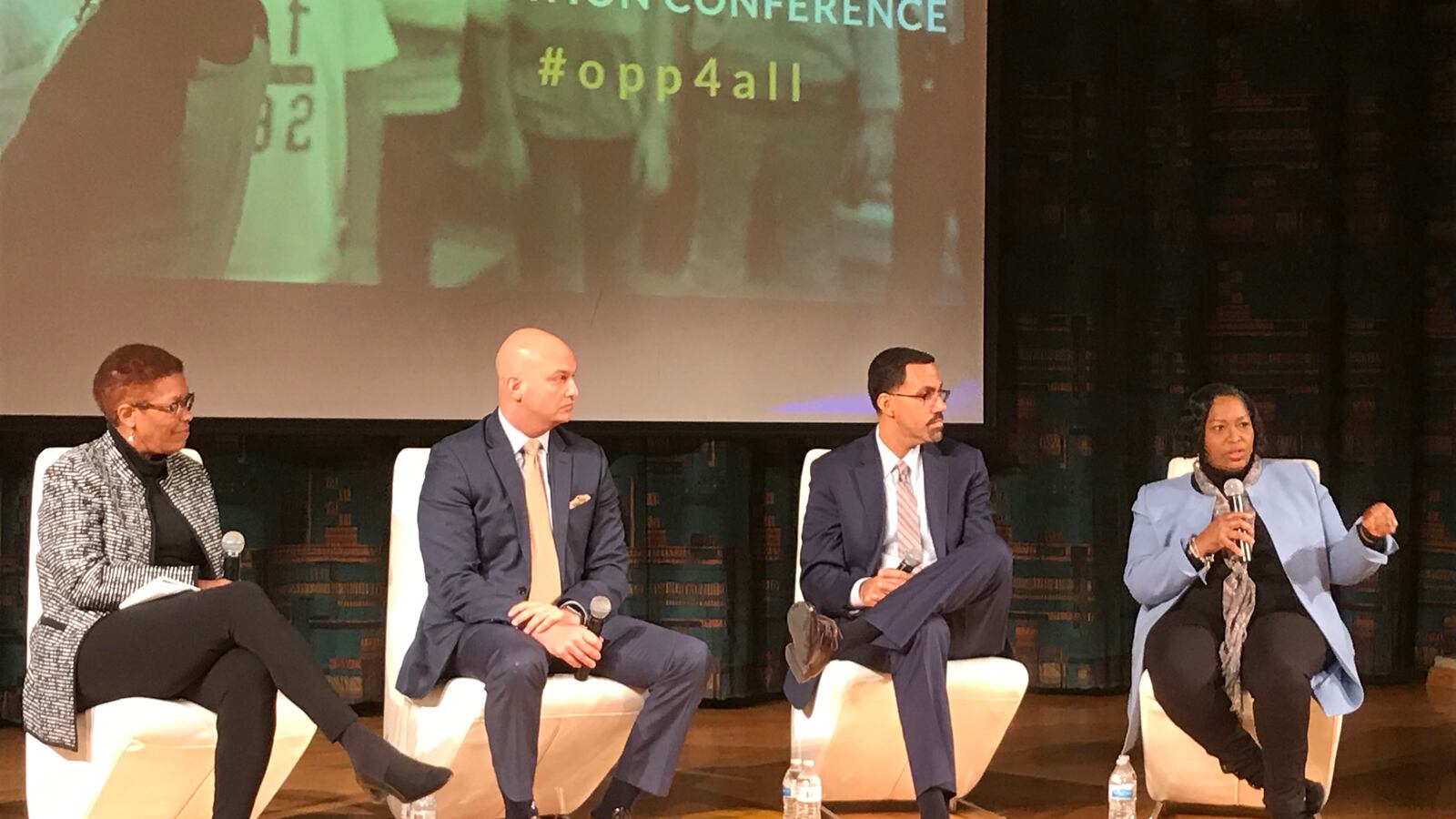A new political dynamic in Lansing has put Michigan in a position to potentially see the kind of education transformation that helped catapult Massachusetts to its status as the top-performing state in the nation, says a former U.S. Secretary of Education.
That bit of optimism from John King, who served as education secretary from 2016 to 2017 and is now the president and CEO of The Education Trust, came after nearly three hours of sobering discussion during an event Wednesday about the need to address inequities in education in Michigan.
Several times, King used the term “grand bargain” to describe what Michigan needs. It’s a term many Detroiters will remember from the Detroit bankruptcy and the deal that was a key part of getting the city out of bankruptcy.
As it relates to education, the term “grand bargain” has been used to refer to the bipartisan agreement struck more than two decades ago in Massachusetts that had broad buy-in from business and education groups, teachers, and parents, to improve academic achievement. The gist: The state invested more money in schools. In return, standards and accountability were increased.
King said Michigan is poised to reach the same consensus and invest more money in education, in particular investing money more equitably so the highest-need students are getting the most funding. He said there needs to be a thoughtful approach to accountability, as well as more investments in teacher preparation and support.
He sees it happening because of new leadership at the state level, including Democratic Gov. Gretchen Whitmer and new Republican leaders of the House and Senate.
“This is a moment where the new leadership in Lansing could come together … and it could be truly transformative.”
The event Wednesday, which took place at the Charles H. Wright Museum of African American History, was organized by the Education Trust-Midwest, a Royal Oak-based education advocacy and research organization. The topic was inequities in education and the need to provide equitable opportunities for children regardless on where they live.
Amber Arellano, executive director of the organization, said Michigan ranks 43rd out of 47 states for the funding gap between poor and wealthy school districts.
“Students and families pay the price for this under-investment,” Arellano said.
She said the experiences of states like Massachusetts that have seen striking improvement provide hope for Michigan because they show transformation can happen over five to 10 years.
Michigan has been falling behind other states in performance on the National Assessment of Educational Progress, a national exam that tests a representative sample of students in each state. The state’s performance, in fact, has shown little to no improvement over the last decade.
“We rise and we fall together. In Michigan’s case, we’re falling together,” Arellano said.
The audience at the event’s two panel discussions also heard from speakers such as Nikolai Vitti, superintendent of the Detroit school district. He said that often, when K-12 educators talk about the need for more resources, “you see the rolling eyes of lawmakers.”
But, Vitti said, “It takes funding to educate children. And it takes more funding to educate children who enter … with more challenges.”
Panelists agreed that Michigan is at a pivotal moment because of its new leadership. And they came up with solutions they think will make a difference.
Melody Arabo, outreach specialist at EdReports.org and former Michigan Teacher of the Year, said the state needs to address a lack of resources for educators. She said that in a classroom of 30 students, a teacher can have some reading at the kindergarten level and others “who can read better than I can.”
The materials that teachers have “are not meeting those needs. Teachers spend an average of 12 hours a week going online looking for resources.”
David Meador, vice chairman and chief administrative officer of DTE Energy, said Michigan should look at what successful states have done and adopt best practices. Just as important, he said:“Stick with it. Don’t change it every year.”
For King, the solution to improving schools is simple and starts at a young age.
“If Michigan is going to improve, it will need a surge in high quality early learning that prepares every child for kindergarten or beyond,” King said.


